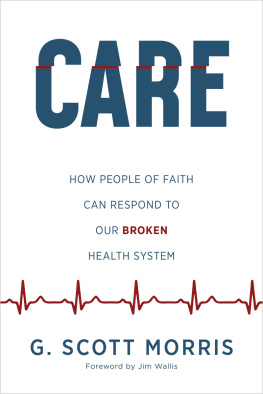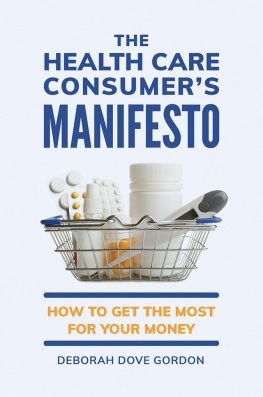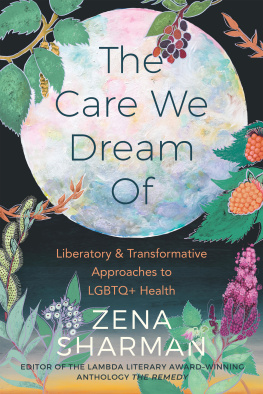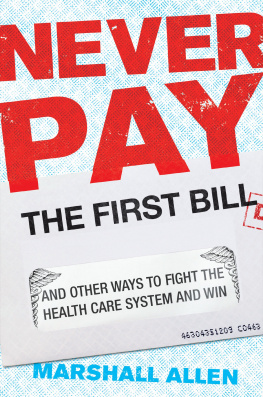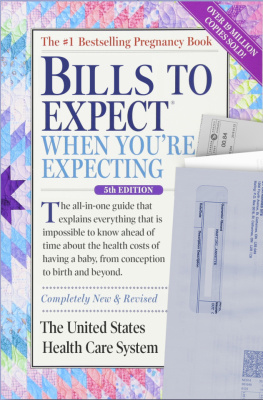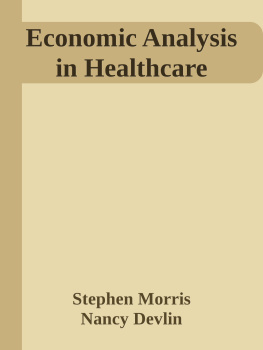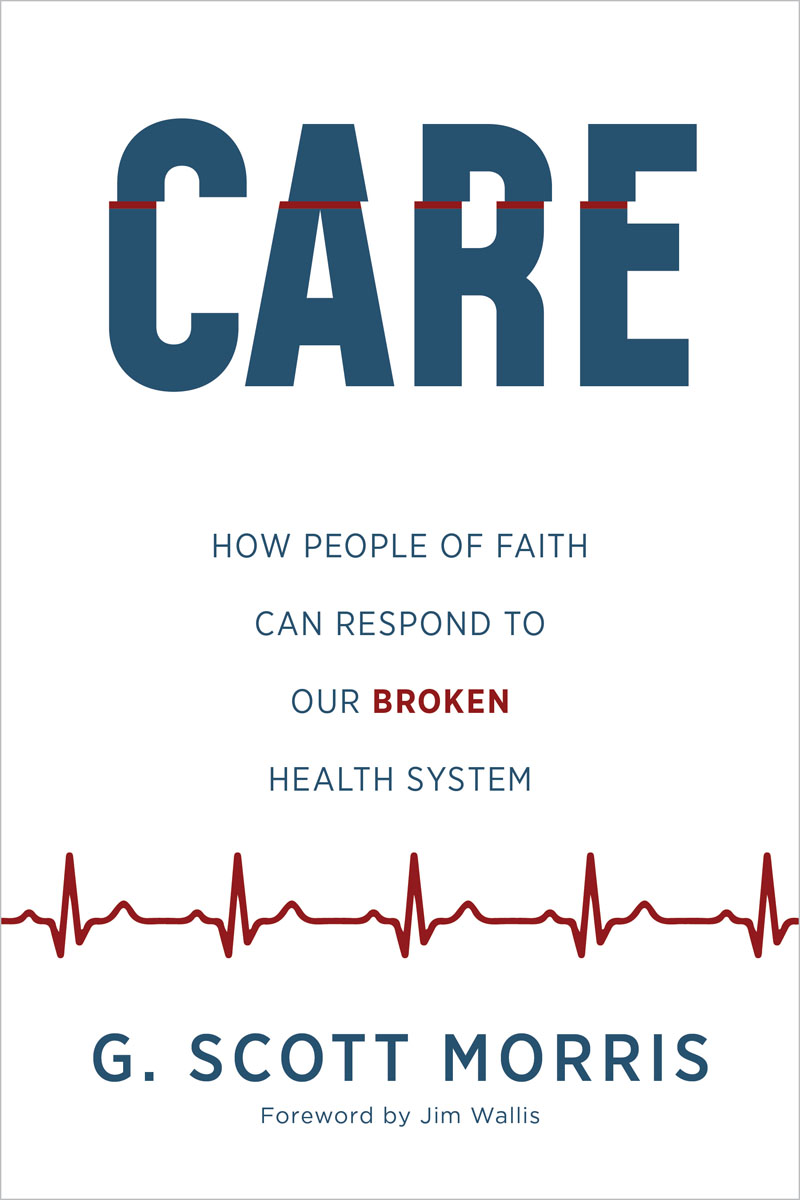

Wm. B. Eerdmans Publishing Co.
4035 Park East Court SE, Grand Rapids, Michigan 49546
www.eerdmans.com
2022 G. Scott Morris
All rights reserved
Published 2022
Printed in the United States of America
28 27 26 25 24 23 221 2 3 4 5 6 7
ISBN 978-0-8028-8237-0
Library of Congress Cataloging-in-Publication Data
A catalog record for this book is available from the Library of Congress.
Unless otherwise noted, Scripture quotations are from the New Revised Standard Version of the Bible.
To the staff, board, volunteers, and donors who have helped Church Health thrive since 1987
CONTENTS
FOREWORD
I didnt know that John Wesley practiced medicine throughout his career. Wesley, the great English preacher, has been a mentor and model for me because he preached a holistic gospelone that is both personal and social, transforming both lives and society. I once got to preach in Wesleys famous pulpit in London, and the feeling of being in a pulpit that changed the world was overwhelming for someone who believes that pulpits should change the world. Most dont. Wesley preferred traveling on horseback, reportedly over fifty thousand miles per year throughout the English countryside. In preaching the gospel, the founder of Methodism believed that healing the sick was central to the gospel message, as was caring for the poor. Both were essential to following after Jesus for John Wesley.
The author of this book, G. Scott Morris, MDiv and MD, is also a follower of Jesus in the tradition of Wesley, being an ordained Methodist minister and a practicing physician who opened Church Health in Memphis, Tennessee, thirty-five years ago because it was one of the poorest cities in the country. This book has a message and a missionto show how the gospel of Jesus Christ is centrally and integrally connected to healing the sick and caring for the poor in both body and spirit. Scott Morris insists they cannot be separated. The gospel that changes lives and society always cares for the poor and heals the sick, which for Scott means the health care that leads to justice for those left out and left behind.
This is a wonderful book of stories: stories of the patients Scott has treated with every kind of ailment and illness, especially health deficits caused by the social determinants in the lives of the poorest Americans; stories of the multitude of other faith-based health clinics that have sprung up around the country; and stories of those called to serve the underserved who are sick, because of their commitment to Jesus Christ. Some of the best stories are the ones about the relationships between the medical doctors and nurses and the patients they meet and serve and how those relationships change everyone involvedas they should.
And throughout the book the story of the gospel shines. Jesus was God made fleshflesh and blood in a body who walked wherever he went in the sun and rain, who got hungry and ate, who got tired and slept, who must have felt better on some days than others. Jesus was fully God but also fully human. He had to care for his own body, and he cared for the bodies of others as central to his ministry. Jesus showed us how the whole person relates to God and how to live a life of faith in a body.
I have never read a book so full of the stories of Jesuss healings, with the texts of those healings woven through very human stories. Just Scotts commentaries on Jesuss healings are worth the read, and the integration of the gospels healing texts and stories with the real-life stories of so many peoples health and healing is a wonderful combination that makes everything very real and very human.
I had heard some things about this but never realized how extensive and extraordinary the response of Christians to the many and massive plagues that ravaged Europe and the Roman world was to their very identity and calling. It was Christians who were the ones who cared for the sick when no one else would, even at risk to themselves. And when people recovered, they reportedly asked, Who is your God, that I might worship him? Even the nonbelievers were impressed by how these Christians cared for the poor and healed the sick. Wouldnt that be a wonderful thing were it true today?
There is a remarkable chapter in this book about the COVID-19 pandemic. COVID-19 was revelatory, showing us the realities and inequities of the world that we ignored, allowed, or just tolerated when we shouldnt have. Scott Morris points those out with the realities that his clinic treated during COVID-19. The poorest were clearly the first and hardest hit, forced to bear the brunt of the suffering and death as essential workers in constant contact with the virus and living in the most crowded households as infections spread. And, of course, the overwhelming and disproportionate victims of COVID-19 were Black and Hispanic. Scotts chapter demonstrates the racialized story of COVID-19. The pandemic didnt discriminatebut we did. The greatest burden was borne by those who always bear the burdens of our inequities. Scott illustrates that what was true before the pandemic became most visible during the pandemic, and its unlikely to change after the pandemic unless we make the commitment not to return to normal. He says, COVID-19 cast a floodlight on the truth.
I was part of forming Faiths 4 Vaccines, the largest multifaith campaign to address the access and hesitancy issues around vaccinations. What we learned that worked was trusted locations and vocations to bring vaccinations to marginalized people. Clinics like Scotts were central to caring for the sick during the pandemic and revealed why and who became the sickest.
Healing the whole person, body and spirit, is the central theme of this book. And the most powerful accomplishment of this book is giving human faces to that healingfaces of the sick, faces of the poor, faces of the healers, and faces of the system that has failed the poor. To my great delight, Scott includes a chapter that gives us the face of the woman who bolstered his inspiration to start his clinic. She is a special friend I first met years ago who demonstrates the face of Jesus more clearly, simply, and humbly than most Christians I have ever met on this planet. Dr. Janelle Goetcheus of Church of the Saviour in Washington, DC, became Jesuss doctor for the citys homeless and poor, walking the streets and the clinics with a cross around her neck. No matter what people believe about religion, no matter what their skepticism and cynicism, when people watch Janelle work and live, they think differently about what it means to be a Christian, just as so many people did when the first Christians cared for the poor and healed the sick in body and in spirit with the health that leads to justice.
Read this book about how to do that again.
Rev. Jim Wallis
Founder of Sojourners
Founding Director of Center on Faith and Justice
ONE
LIVING WATER IN CACTUS, TEXAS
Two.
You got drunk after two beers? Dr. Stephanie Diehlmann was dubious. No one gets into a bar brawl and has his finger bitten after just two beers. And George was not a small man and was still young.
She cleaned Georges red, swollen, tender, clearly infected finger and waited for the truth. Two beers before work. Two more during working hours. Two after work. Thats what George grudgingly admitted to. Steph figured he drank at least twice what he confessed. George did some serious drinking all day every day.
Next page
